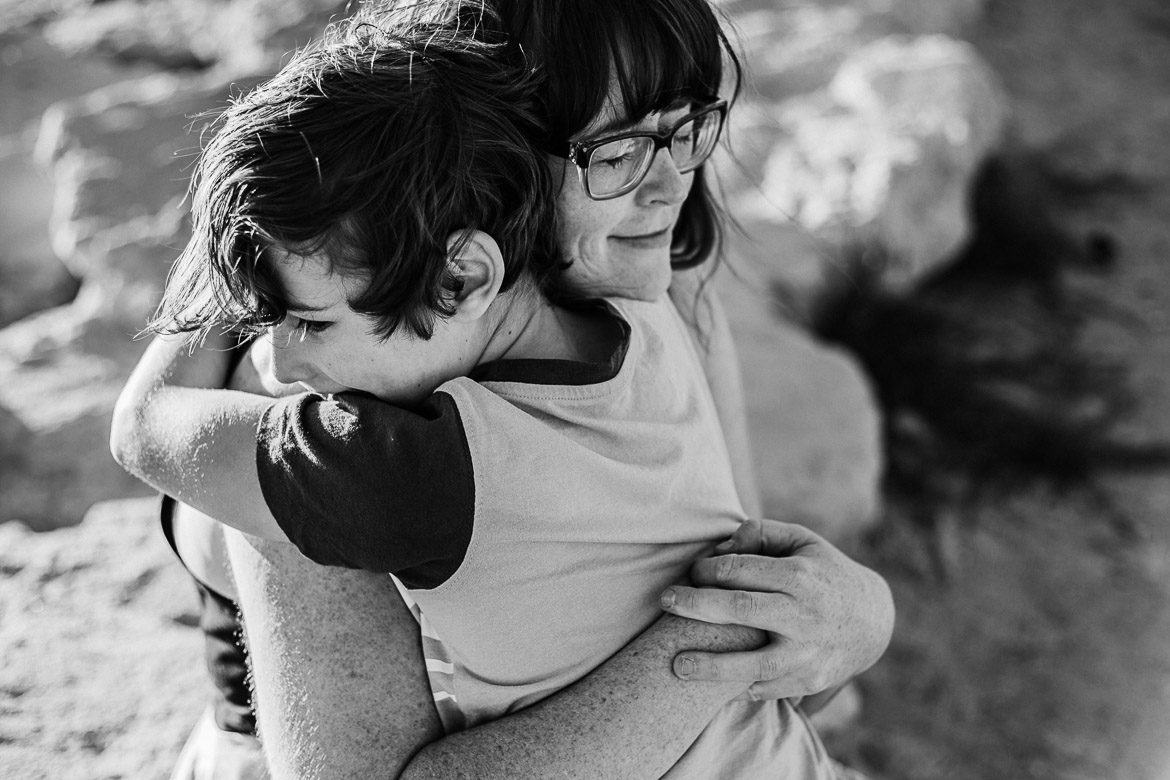By Dr Laura Markham
“I love your posts, but my husband is afraid that if we allow our kids to get upset as you suggest, they’ll never learn to control their emotions. Don’t we need to just say no sometimes?” – Rachel
All of us worry about our kids learning to control their emotions. After all, it’s emotions that so often get us off track and into trouble. And of course we need to just say no sometimes. Kids can’t run into the street, throw their food at each other, or pee on their baby brother.
But setting limits on children’s behavior doesn’t mean we need to set limits on what they feel. In fact, when we don’t “allow” our child to get upset, we’re unwittingly making it harder for our child to learn to manage his emotions.
That’s because you can’t actually keep your child from getting upset, whether you “allow” it or not. Telling your child not to cry won’t keep him from being upset; it will just give him the message that there’s something scary or shameful about his emotions, so he’d better try to hide them. Unfortunately, when humans repress emotion, those emotions are no longer under conscious control. So they pop out un-regulated, causing the child to lash out or act out.
It’s that dysregulation that scares parents, when our child seems completely out of control. But kids don’t get dysregulated because we “allow” their emotions. They get dysregulated when they need to express an emotion but feel they “can’t.” So, instead, they “act (it) out”.
So denying emotion or making ourselves wrong for having emotions doesn’t help us control them. Here’s how a child actually learns to regulate his emotions. Notice that all the action items start with what “WE” – the parents – do.
- We model self-regulation. That means we resist our own little “tantrums” such as yelling. Instead, we take a parent time out to calm ourselves down. If our child is too young for us to leave the room, we do as much processing at other times as we can, so we can stay more calm while we’re with our kids. Then, in the moment, we slow things down and take responsibility for how we express our emotions. After all, children learn from us. When we yell, they learn to yell. When we speak respectfully, they learn to speak respectfully. Every time you model in front of your child how to stop yourself from acting when you’re angry, your child is learning emotional regulation.
Please note I’m not suggesting that you should “stuff” or repress your emotions. That would just make them harder to control! I’m suggesting that you handle the emotions responsibly, by noticing the feeling and tolerating it – but NOT taking action. Every time you do that, you’re strengthening your neural networks to manage your emotions. That’s exactly what we’re trying to teach our children to do. And of course, we need to be the role models.
(Not perfect yet? Don’t worry. Most of us are still working on this. In fact, it’s the work of a lifetime. Just keep taking steps in the right direction.)
- We make it easy to talk about emotions. Research shows that children grow in emotional intelligence when we talk about our own feelings, acknowledge theirs, and wonder aloud about those of other people: “That little boy in the stroller is crying…I wonder what’s wrong? What do you think he needs?”
Is it important to teach kids words for their emotions? Yes, it validates their experience and helps them understand others. But labeling emotions when tempers rage just makes the child feel analyzed, and talking of any kind takes the child out of her heart and into her head, which makes it harder to work through the feelings. Instead, in those tough moments, focus on simply accepting your child’s emotions and offering compassion, even if you need to limit your child’s actions.
After everyone is calm, it always helps to talk with your child about what happened – not to criticize or lecture, but to apologize, empathize and restore connection: “We were all so upset that we started yelling. But that’s no way to work things out with someone you love. I’m sorry I lost my temper. I know you must have been so upset, too, to say/do those things. I’m ready to listen now to what you were upset about.”
See next page for more…











